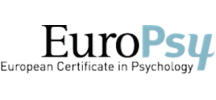EuroPsy
Standards and Quality in Education for Professional Psychologists
Product Description
The only comprehensive professional handbook on EuroPsy, the European standard and benchmark for education and training in psychology. This book is mandatory reading for anyone involved with accreditation, education, quality assurance, and assessment of standards in psychology.
EuroPsy has been accepted and adopted as the European standard for education and training in psychology by EFPA. This book, written by its initiator and leading members of the working groups that set EuroPsy up, is the only comprehensive text available about this European benchmark. It first reviews the development of EuroPsy in the historical context of psychology as science and profession and policies for higher education set by international bodies, and in particular the European Union.
This handbook then goes on to address the curricula of university courses and programmes following from the Bologna Agreement, the flexibility allowed to reflect diversity in Europe, licencing and accreditation, and benchmarking, as well as other prerequisites for meeting the EuroPsy standards. These include the use of a competence model to assure professional standards, supervision, continued professional development, supervision, and ethics. Finally, the authors examine the current and future role of EuroPsy in psychology in Europe, including practical examples of how EuroPsy has been applied in practice.
Praise for the Book:
“The authors’ knowledge of EuroPsy is not that of outside observers: They are the major actors from within European and world psychology that created it. Their book is therefore an in-depth reflection on the origins, current state, and future of the profession of psychology. This book is right now a landmark in current analyses of the profession.”
Roger Lécuyer, Emeritus Professor in Developmental Psychology. University Paris Descartes, France
“What a grand book! The authors give us far more than a detailed, insiders’ view of the origins, development, and details of EuroPsy — they root it in history, place it in context, and provide a vision for its formative role for psychology within a European context and beyond. This book will serve as a reference for what has been accomplished, as a guide for what is to come, and as a resource for development.”
Merry Bullock, BA, PhD, senior direct of the APA’s Office of International Affairs, United States
“After reading this book you will never again think that international collaboration is only about canapés, champagne and boring meetings. This book gives great insights because it is all about quality, ethics and securing good service to the public. It has been able to find common ground for the development of a profession in a landscape marked by diversity. I am sure it will inspire many more than me.”
Tor Levin Hofgaard, Vice President of International Union of Psychological Science, IUPsyS and President of the Norwegian Psychological Association






